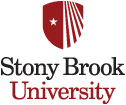 |
WELCOME TO MAT 342
|
 |
WELCOME TO MAT 342
|
Time and place:
Lecture: MWF 11:00-11:53 in Frey 301
Introduction: This is an advanced mathematically rigorous course with complete proofs. Topics covered may include:
1. The field of complex numbers Complex conjugate, absolute value and the triangle inequality. The distance between complex numbers. The polar and exponential forms. Roots and powers of complex numbers. Arguments of products and quotients. Regions in the complex plane.
2. Analytic Functions Functions and Mappings. Limits Limits involving the point at infinity. Continuity and derivatives. The Cauchy-Riemann equations and differentiability of a complex function. Polar Coordinates. harmonic functions.
3. Examples of analytic functions The exponential function, logarithm, trig functions, hyperbolic trig functions
4. Integrals Contour integrals, the Cauchy-Goursat theorem and its proof, simply and multipli connected domains, Liouville's theorem and the fundamental theorem of algebra
5. Series Taylor series and Taylor's theorem, power series and its domain of convergence, Laurent series
6. Residues and poles Cauchy residue theorem, types of isolated singular points, zeros and poles
7. Additional topics as time permits
Text Book: Complex Variables and Applications by J.
W. Brown and R. V. Churchill, 9th edition (c) 2014
| Instructor: | Prof. David Ebin Math Tower 5-107 tel. 632-8283 E-mail: ebin@math.sunysb.edu Office Hours: M,W, 4:30-5:30PM, or by appointment |
Assistant: Bowen Zhang E-mail: Zhang.Bowen@stonybrook.edu
Office Hours:Thursday 4:00PM to 5:00PM Math Tower S240A.
Thursday 5:00PM to 7:00PM in the Math Learning Center
Or
by appointment
Homework:
Homework will be assigned every week. Doing the homework is a fundamental
part of the course work. Problems should be handed in in your
lecture.
1st
assignment: page 13, problems 3, 4; page 16, problems 10,
13, 14; page 23, problems 6, 9 due February 3
2nd assignment: page 30,
problem 7; page 34, problem 6, 7c, 8, 10; page 43, problems 1cd; page 54,
problem 5, 9, 11 due February 10
3rd assignment: page 61, problems 2c, 4, 6a, 7, 8 due February 17
4th assignment: page 70, problems 1c, 6, 7a, 8ab; page 76,
problems 1cd, 2b, 5, 6, 7 due February 24
5th assignment: page 79, problems 1,2; page 89, problems 1a, 5,
6 due March 2
6th assignment: page 95, problems 1ab, 3, 10ab; page 103,
problems 3, 9 due March 9
7th assignment:
8th assignment:
9th assignment:
10th assignment:
12th assignment:
Grading Policy: The overall numerical grade will be computed by the formula 20% Homework + 30% Midterm Exam+ 50% Final Exam
Midterm Exam: March 13 in class
MIDTERM EXAM REVIEW:
Exam
Review
Final Exam:Thursday, May 14 11:15am-1:45pm
FINAL EXAM REVIEW:
Disabilities: If you have a physical, psychological, medical, or learning disability that may impact your course work, please contact Disability Support > Services or call (631) 632-6748. They will determine with you what accommodations are necessary and appropriate. All information and documentation is confidential. Students who require assistance during emergency evacuation are encouraged to discuss their needs with their professors and Disability Support Services. For procedures and information go to the Evacuation Guide for People with Physical Disabilities.
Academic Integrity: Each student must pursue his or her academic goals honestly and be personally accountable for all submitted work. Representing another person's work as your own is always wrong. Faculty are required to report any suspected instances of academic dishonesty to the Academic Judiciary. For more comprehensive information on academic integrity, including categories of academic dishonesty, please refer to the academic judiciary website.
Critical Incident management: Stony Brook University expects students to respect the rights, privileges, and property of other people. Faculty are required to report to the Office of Judicial Affairs any disruptive behavior that interrupts their ability to teach, compromises the safety of the learning environment, or inhibits students' ability to learn.